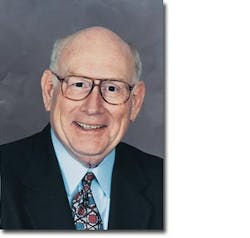Ground Clutter
It was arguably the most important flight in the history of the world, and remains so to this day. October 4, 2007, is the 50th anniversary of what one newspaper pundit called “the shock of the century.” On that day in 1957, the USSR launched Sputnik and the world changed overnight,
particularly in the United States.
Those of us who were alive and paying attention will never forget that horrifying event. Those born thereafter will never understand it. I was six months past my 16th birthday — short of adulthood but aware of Sputnik and vaguely aware of the world situation. This is the story of how we saw it at the time.
For the 12 years between the end of WWII and Sputnik, there was one country that could have taken over the world, and, to paraphrase Pogo, it was us. We were the big gorilla, no question about it. We — particularly people my age who had never known it to be otherwise — took it for granted that we would be on top forever with no close second. Then, Sputnik flew.
The front-page headline of the New York Times screamed in huge print and all caps: “SOVIET FIRES EARTH SATELLITE INTO SPACE; IT IS CIRCLING THE GLOBE AT 18,000 M.P.H.; SPHERE TRACKED IN 4 CROSSINGS OVER U.S.”
(See www.nytimes.com/partners/aol/special/sputnik/scan1.html.)
It was Sputnik’s crossing over the U.S. that scared us. Could the craft drop bombs from up there? We didn’t know. We just knew it was up there, it was crossing the U.S.A., and it was beeping. (Hear the beep yourself at http://history.nasa.gov/sputnik — click the words below the drawing.)
It wasn’t just the fear. We were truly embarrassed that the Soviets had passed us in anything, much less space. Oh, the ignominy of it all.
Democrats blamed it on Republicans. They both blamed our schools. The push was on to “catch up.” Engineering schools filled. Public schools stressed science courses. (My father, superintendent of schools in Glynn County, Georgia, managed to hire a truly great and charismatic chemistry teacher who filled the chemistry labs with eager students late into the night.)
Well, we all know the rest of the story. Early in his first term, President John F. Kennedy vowed that we would, before the end of the 1960s, “put a man on the moon and return him safely to earth.” We did, and all was right with the world. We were once again in our rightful place — on top.
In my lifetime I remember precisely and vividly where I was on only a few dates. The end of WWII, the day Kennedy was assassinated, the first moon landing, the Challenger disaster, September 11, 2001 — and the day Sputnik went up.
It really was a shocker.
